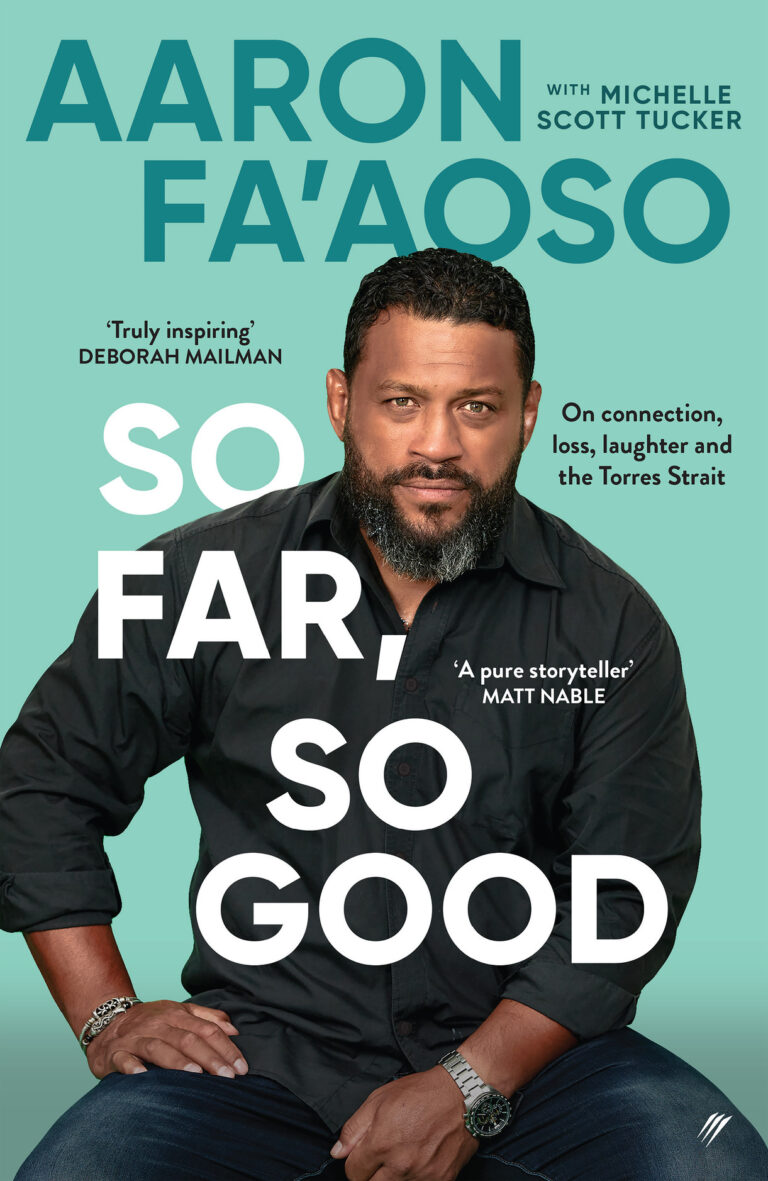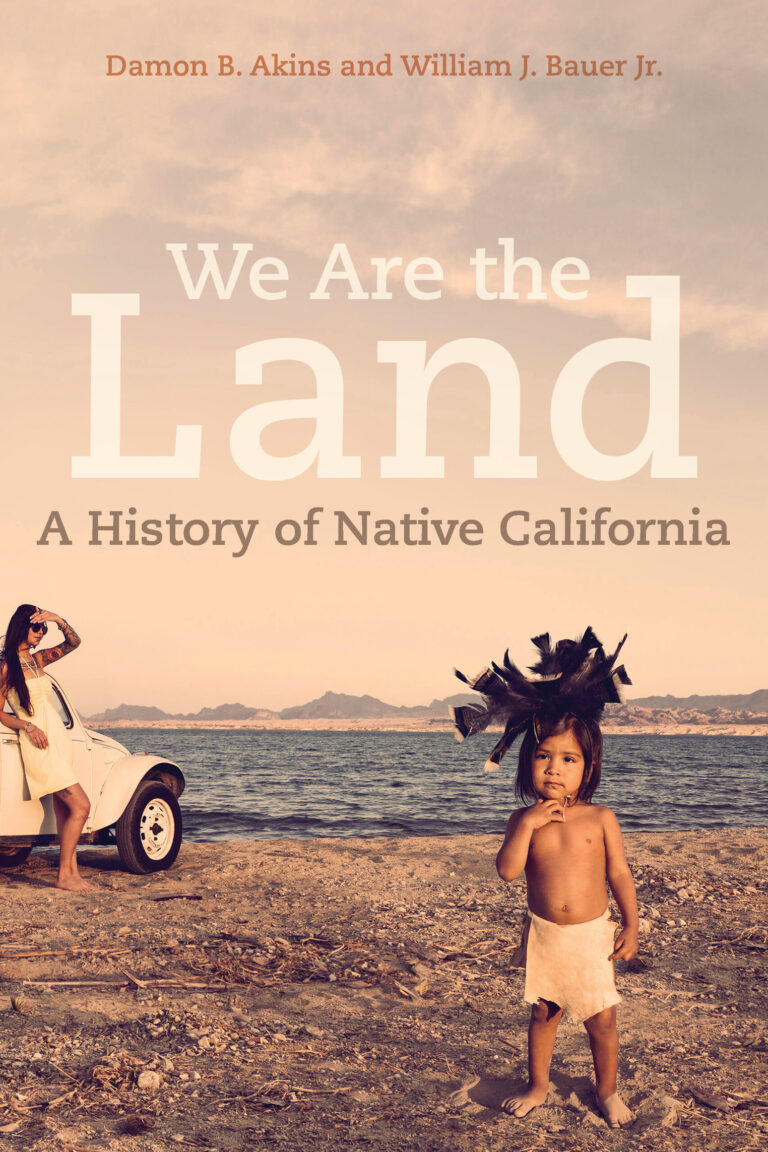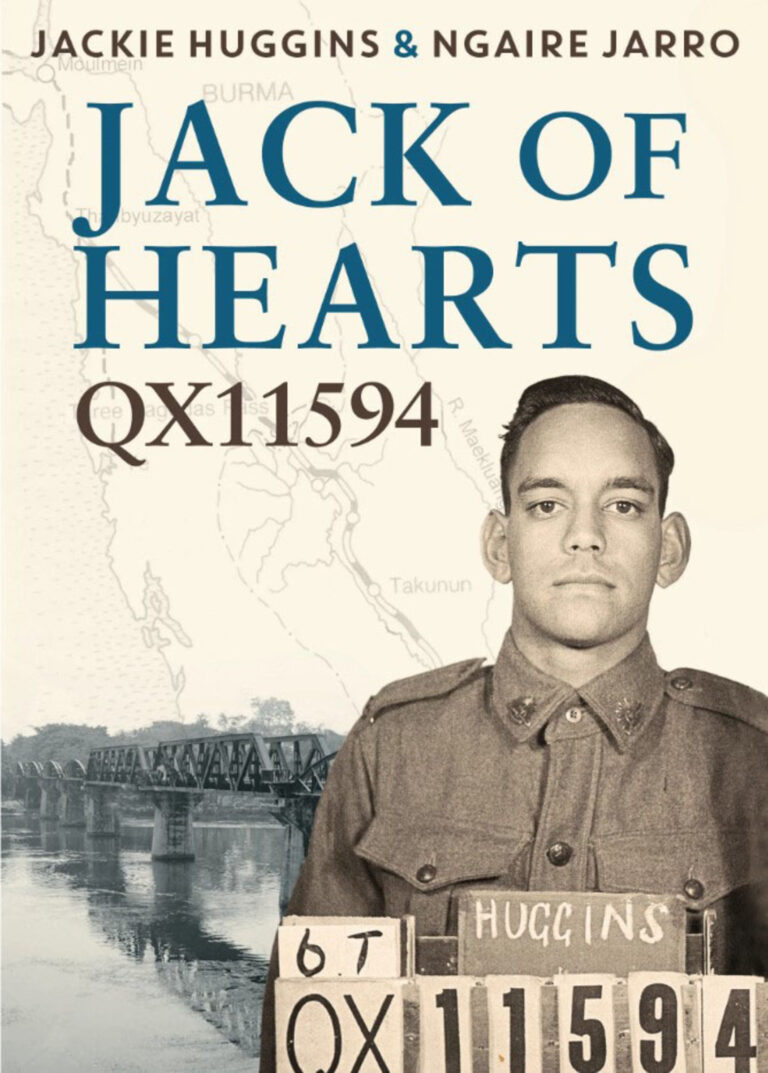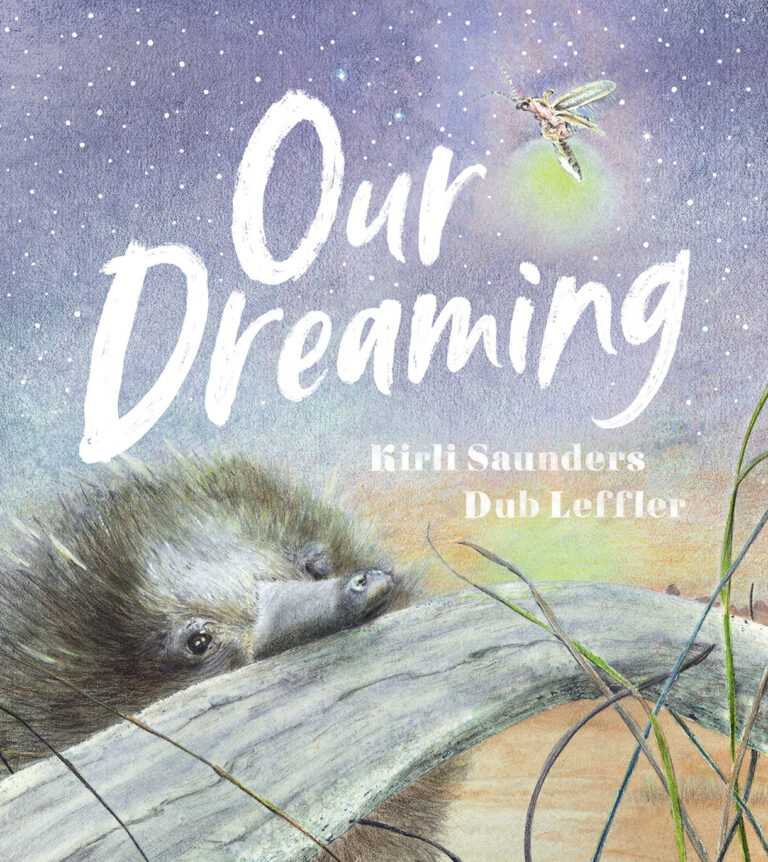Ready to find some excellent weekend reading? In the latest issue of Reconciliation News, we review some recent releases from First Nations authors and artists.

So Far, So Good – On connection, loss, laughter and the Torres Strait by Aaron Fa’aoso with Michelle Scott Tucker
Pantera Press
Aaron Fa’aoso starts his new memoir with a story of a school yard fight to recover his cousin’s stolen bike. The fight’s repercussions were severe for fifteen-year old Aaron but he consoles himself with the thought that his protagonist ‘wasn’t going to steal from a Blackfella again’.
It is a fitting anecdote to start this story of a man’s beginnings, impacted by poverty and racism, but buoyed by the love of family and the strength of his Torres Strait culture. Over its 343 pages, So Far, So Good tells a remarkable story from beginnings in the tiny Cape York community of Seisia, to becoming a major Australian actor, comedian, producer, and entrepreneur.
Aaron’s professional detours along the way include Kings Cross bouncer, professional footballer and remote health worker.
With great humour, Aaron takes the reader through the travails of an extraordinary life. A series of chapters titled in his Grandmother’s Kala Lagaw Ya language and English offer observations on contemporary Australia.
In the final pages, Aaron provides some advice to white Australia: ‘We all have to move forward together… but before that can happen Whitefellas need to tell the truth, or learn the truth and accept the wrongs of the past and present, and the impact of those wrongs on my people. On me.’

We Are the Land: A History of Native California by Damon B. Akins and William J. Bauer
University of California Press
In this thoughtful and comprehensive study of what we now know as ‘California’, the US State is presented as a place that has always been and remains Indigenous land, with Indigenous People central to the history and future of the place.
The authors are both historians: Bauer an enrolled citizen of the Round Valley Indian Tribes and Professor of History at the University of Nevada; and Akins, a Professor of History at Guilford College. They centre California’s history around the lives and legacies of its Indigenous Peoples, telling the nuanced story of many nations and tribes, separated by language into as many as 135 distinct dialects. The book traces their lives during Spanish colonisation, which saw the establishment of coercive religious labour camps or ‘missions’, the introduction of epidemic diseases and the forced removal of children from their parents.
Bauer and Akins describe the devastating impacts of the Mexican secularization that followed, the goldrush, statehood and ongoing genocide. Against this backdrop, they detail the activism and political organisation for sovereignty that has seen California’s First Peoples build the casino economy of today, the revenues of which have enabled ‘California Indians’ to claim rightful ownership of lands that they have helped restore, in turn reviving language and cultural practices.
The parallels between the Californian and Australian contexts are striking, from the historical and ongoing atrocities of colonisation to the collective action taken towards self-determination and reconciliation.
We Are the Land is a great resource for educational and policy-making settings, as well as for casual readers interested in histories that centre the experiences of First Nations peoples around the world.

Jack of Hearts: QX11594 by Jackie Huggins & Ngaire Jarro
Magabala Books
Jack Huggins was a young Aboriginal man from Ayr, Qld who fought for Australia in World War II. His father had served in World War I and Jack was determined to follow in his father’s footsteps.
He was captured by the Japanese in Singapore and spent years on the notorious Burma-Thailand railway. When he returned to Australia – like so many Aboriginal and Torres Strait Islander service members – he faced discrimination, prejudice, and exclusion. Jackie Huggins and Ngaire Jarro’s Jack of Hearts: QX11594 is a deeply moving biography of their father’s experiences.
It tells a story of loss, love, courage, and the immeasurable contributions Aboriginal and Torres Strait Islander service members have made to our history. Above all else, Jack of Hearts reminds us that the fight for recognition of their bravery continues.

Our Dreaming by Kirli Saunders and Dub Leffler
Scholastic Australia
Proud Gunai author Kirli Saunders and descendent from the Bigambul people of south-west Queensland, illustrator Dub Leffler, once again join forces to bring to life Our Dreaming, a stunning visual journey for young readers, who are invited to ‘walk with me’ while the knowledge of ‘Our Dreaming as the Elders told it’ is shared.
An older echidna walks through Country with a young echidna, taking the goodjagah on a path of ‘footstone laid down by those who came before’. It is a journey on Gundungurra Dreaming and connectedness to Country: ‘Our Dreaming is different to the others, goodjagah. You see, each nation has their own.’ Kirli effortlessly interlaces Gundungurra words into the story and there is a Gundungurra word list at the back of the book, explaining the meaning and how to pronounce each of the words. The illustrations are soft and beautiful – making use of colours that reflect the Country, animals and insects who the two echidnas encounter on their path.
It’s a perfect and gentle bedtime story and takes the young ones on a journey, as three-year-old Ethan said when seeing the bees, ‘we have to look after the bees to look after the earth. ’Our Dreaming explores a deep love and respect for Country and all her spirits.
Read this story, or find more stories in the full edition of the October 2022 issue of Reconciliation News.



